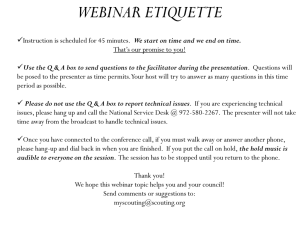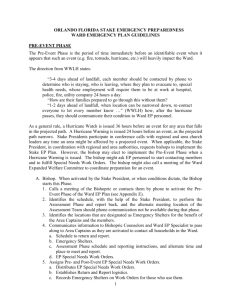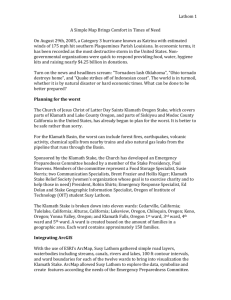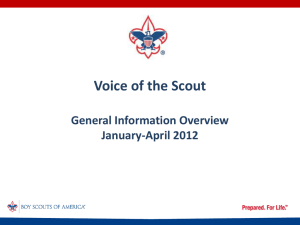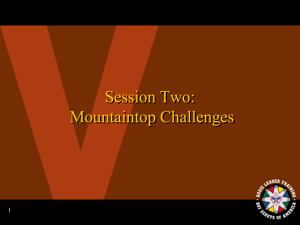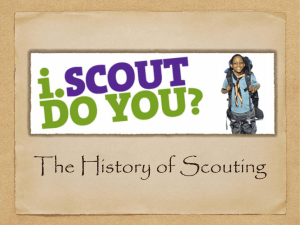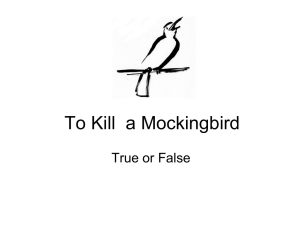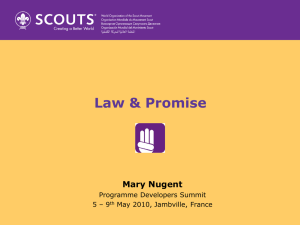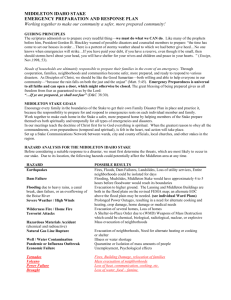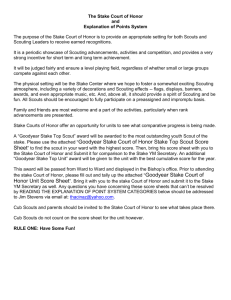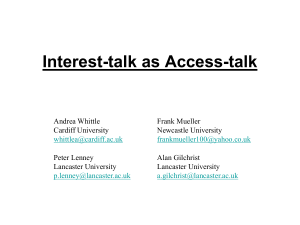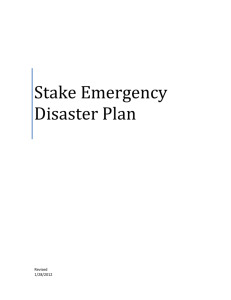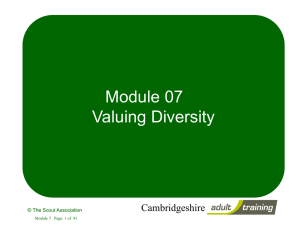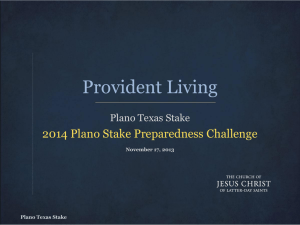Little Philmont Scout Committee Training Slides
advertisement
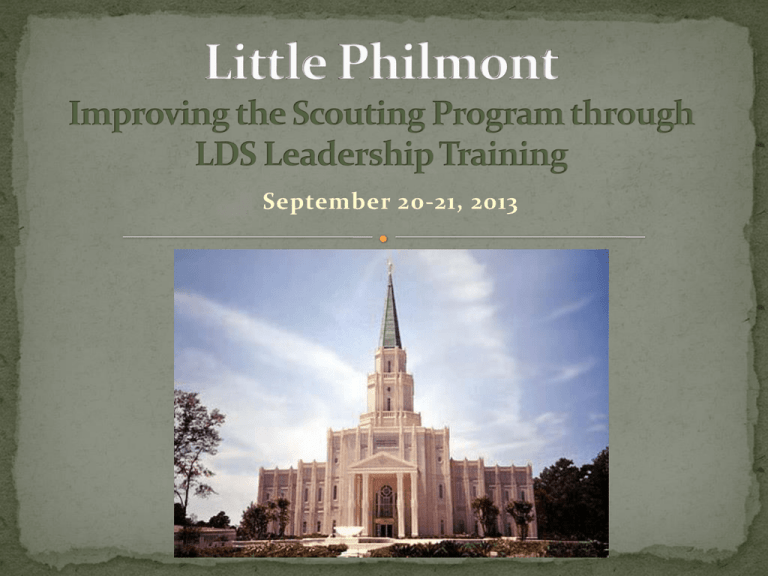
September 20-21, 2013 • Focus on Fundamentals • Focus on People • Promote Free and Open Expression • Participation is a Privilege • Lead with Love Elder M. Russell Ballard “A slow erosion of spirituality is occurring. We must build faith and testimony in the Lord Jesus Christ. The purpose of our councils is to receive revelation.” - Elder David A. Bednar The bishopric organizes ward Scouting Committees to ensure that Scouting functions properly as a supporting activity for Aaronic Priesthood quorums. The bishopric calls several capable adults (including fathers and mothers of boys and young men) to serve as committee members. One of the committee members is called to serve as the chair. Qualified adults, whether members of the Church or not, may serve on these committees. Each committee should include a member of the bishopric. The organization of Scout committees can and should be flexible. Scout committees may include multiple wards. COR (Bishopric Member) Scouting committee chairman Advancement and membership Activities and equipment Training Finance Hold Regular meetings Announce meetings Follow an Agenda Start and End on Time (Limit to 1 hour) Publish Minutes Focus on the Young Men Ask Parents to Serve on Committee Make Assignments Follow up Aaronic Priesthood and Youth websites have many resources that can help young men and their leaders. Become familiar with them—and use them! Stake leaders can provide support to ward leaders by helping them become aware of the most current resources . See “Training Resources” pgs 50–52 of Philmont PDF See https://www.lds.org/callings/aaronicpriesthood/leaderresources/scouting/philmont?lang=eng How can these Internet Resources be used effectively? We need to know they exist We should review them to see what they entail— and check back occasionally to become aware of updated resources We should prayerfully select those that will touch hearts and teach key principles Training opportunities (Scout committee meetings, troop meetings, presidency meetings, quorum meeting) Most activities should be simple and have little or no cost. Expenditures must be approved by the stake presidency or bishopric before they are incurred. Stake and ward budget funds should be used to pay for all activities, programs, and supplies. Members should not pay fees to participate. Nor should they provide materials, supplies, or longdistance transportation at their own expense. If the ward budget is insufficient pay for one annual extended Scout camp or similar activity, leaders may ask participants to pay for part or all of it. If funds from participants are not sufficient, a stake president or bishop may authorize one group fundraising activity each year for the following purposes only: a. To help pay the cost of one annual camp or similar activity. b. To help purchase equipment that the unit needs for annual camps. If a fund-raising activity is held: provide a meaningful value or service no soliciting beyond stake or ward boundaries no selling commercially produced or packaged goods or services door to door should be a positive experience that builds unity Expenses or travel for an annual camp or similar activity must not be excessive. Lack of personal funds should never prohibit a member from participating. Great Ideas for Scout Fundraisers? What is one thing that you felt impressed to do to strengthen the Scout Committee in your ward or branch? Or if you’re a stake leader, to help strengthen the Scout Committees in your stake?

